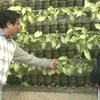From building bricks out of waste to making agriculture sustainable: Top 10 social stories of 2020
From making career counselling accessible to the underprivileged to observing the impact of the coronavirus-induced lockdown on the environment, here are the top Social Stories of 2020.
While the year 2020 may be about to end, it has already found a place in history books. The coronavirus pandemic has left an unmistakable imprint in our collective memory. Not many will have any regrets of the year ending as it has become synonymous with the global outbreak, being aware of our own mortality, staying locked indoors, and the disastrous economic ramifications.
But despite all the doom and gloom, many individuals and organisations also made us realise the value of serving and giving back to the society. These stories of strength – from opening model anganwadis in Jharkhand, rescuing thousands of animals, to providing an opportunity to kids from poor economic backgrounds – furthered our resolve to serving the humankind.
We became conscious of our own surroundings and began valuing our environment – whether it be through sustainable agricultural practices or not letting waste remain unutilised.
Without further ado, here are the top 10 social stories that were read by you this year:
Empowering Jharkhand through education
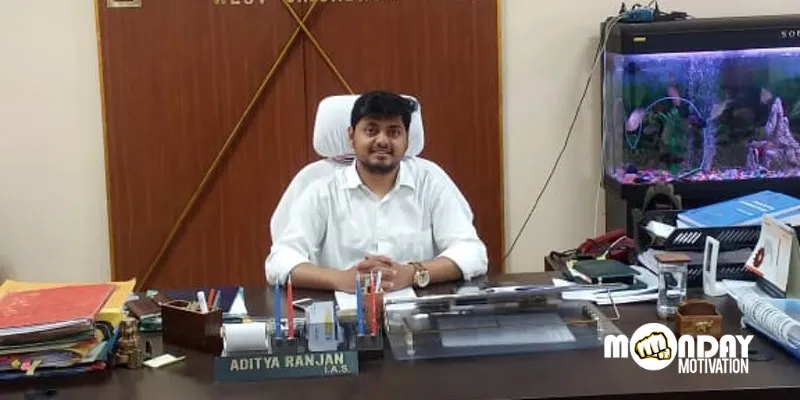
IAS Officer Aditya Ranjan
If you travel through Shinghubhum district in Jharkhand — one of the poorest constituencies in India — you will notice that the walls of 650 anganwadis (rural childcare centres) are painted with numbers and alphabets.
A part of ‘Model Anganwadi,’ the initiative is the result of the efforts of IAS officer Aditya Ranjan, who is working on providing better sanitation, starting basic education, and providing nutritional food for the villagers.
He found inspiration for model anganwadis when he saw a widowed sevika improvise one such anganwadi in Deoghar district by using her meagre monthly salary of Rs 4,500.
The model anganwadis have played a critical role in giving adequate nutrition needed for a child’s growth and development. To ensure that the resources are properly used, he introduced the E-Samiksha app to record daily activities at the centres.
He went on to make the District e-Governance Society (DeGs) programme more effective to raise computer literacy and soft skills, including how to walk and talk professionally, speak at interviews and group discussions, and the ways to use mobile phones.
How the environment took a breather during the lockdown

With the coronavirus pandemic locking us indoors, and the resulting restrictions slowing down industrial activity and halting travel, the environment took a break from the constant degradation.
The drastic measures taken by governments because of the spreading of the novel coronavirus, and the shutdown of factories, commercial establishments, and vehicular movement, resulted in a drop in the pollution levels across the world. The Air Quality Index (AQI) sank to as low as 93 in March 2020 in New Delhi as compared to 161 in March 2019, as per IQAir reports.
Mother Earth seemed to have rejuvenated itself – smog gave way to blue skies, marine life saw a resurgence, and animals as well as birds moved about on their own accord. The nationwide lockdown also provided the perfect condition for olive ridley turtles to lay eggs in Odisha’s Gahirmatha beach and Rushikulya’s rookery.
However, Sunita Narain, a renowned environmental activist and the Director-General of the Centre for Science and Environment (CSE), expressed that the environmental restoration amid coronavirus outbreak may have been just a phase that might not have a long term impact.
“We require long-term solutions like that of the utilisation of clean energy, conservation of forests, and efficient waste management systems in order to see real impact,” she explains.
Making a difference with organic farming

Satyajit and Ajinkya Hange
Satyajit Hange (39) and Ajinkya Hange (36) spent time across India’s metro cities for about seven to eight years before they found their calling in farming. The brothers learnt from their co-workers in agriculture that the productivity of farms had fallen drastically.
“Before we started, we realised that there was lesser produce in most of the farms due to decreased soil fertility and also because of inorganic farming practices. Moreover, the availability of water was going down, and so was active labour,” explains Satyajit.
They quit their jobs as bankers to start their own organic farm in 2014 – Two Brothers Organic farm (TBOF).
When they established a model after four years of trial and error, the brothers had cultivated indigenous seeds and their own fertilisers and pesticides, drastically bringing down their farming costs.
Ajinkya says their main focus is to produce products which have a larger shelf life like traditionally made and nutritionally richer ghee, jaggery, moringa powder, and also a unique immunity boosting powder.
Offering career counselling to the underprivileged
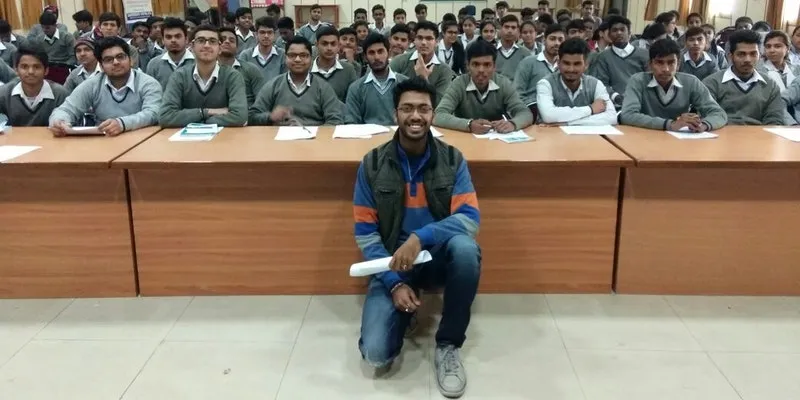
Aditya Bose. Founder, ProBano
Started in 2017 by Aditya Bose, Delhi-based has reached out to 12,000 students from 142 institutes across 11 states with feasible career counselling for students living in slums, and those coming from poor economic backgrounds.
“We aim to democratise quality career guidance and don’t want students from the bottom of the pyramid to miss out on it because of the huge potential it possesses. That’s why, we have career guidance offerings that provide a mix of online and in-person career guidance, priced at Rs 99 – Rs 4,999 per student,” he said.
The startup has designed its approach in a way to understand the needs of young school children. The first cycle is centred around exploring and discovering one’s passion. The startup then takes its students through career-based courses, where online modules coupled with a few in-person classes are conducted, to help them learn the fundamental skills needed to pursue their desired career option.
ProBano has provided career guidance to high school students of Army Goodwill schools in Jammu and Kashmir, and branches of Government Higher Senior Secondary schools in Jammu, Rajasthan, and Haryana.
It has also offered its services to the Tamil Education Association schools in Delhi, multiple Zilla Parishad High schools of Telangana and Andhra Pradesh, as well as government ITIs of Haryana.
Making value out of waste
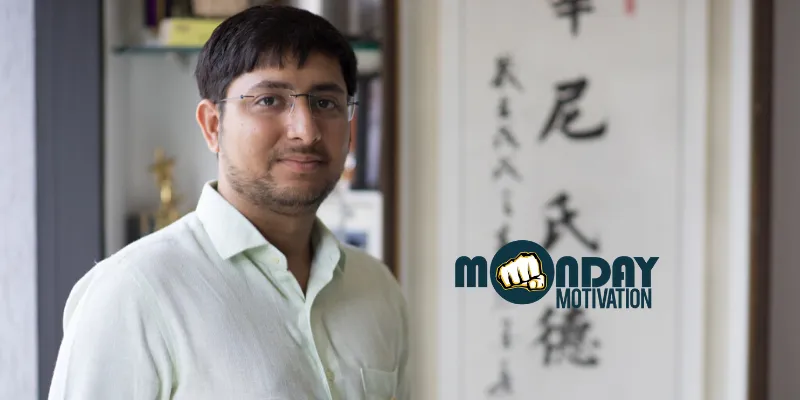
Born in Valsad, Gujarat, Dr Binish Desai was always very inquisitive and keen on learning new things.
At the age of 16, he developed a low-cost brick that could be used for infrastructural purposes. The P-bricks that he had developed was mainly made from paper waste, leftovers of chewing gum, some organic binders, and plant extracts.
Initially, he did not have sufficient funds nor resources like land and labour to run his company. But over a period of time, Binish’s firm BDream landed up constructing 11,000 toilets, houses, and buildings in rural Gujarat, Maharashtra, and Andhra Pradesh.
From there on, there was no looking back for Binish. Right from inventing his first machine to convert vapour into water in his mother’s kitchen to becoming the ‘Recycle Man’ of India, he did it all.
His insatiable curiosity, divergent thinking, and industrious nature helped him don multiple roles that he fulfills even today as an entrepreneur, environmentalist, and innovator.
Reducing fertiliser use and increasing crop productivity
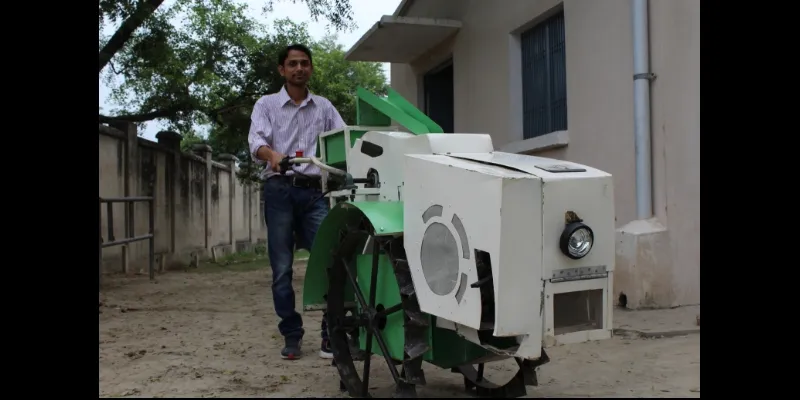
Ayush Nigam with his product, Co-founder of Distinct Horizons
The agricultural sector in India is plagued by a number of issues that include small and fractured landholdings, lack of fertile seeds, irrigation, insufficient mechanisation, and more. Low crop production is mainly caused by the excess use of chemical fertilisers and pesticides, which also leads to decline in quality.
, a Delhi-based agritech startup, seeks to address food production, while protecting the ever-degrading environment.
Founded by Ayush Nigam, an IIT-Madras alumnus along with his friend Santosh Kumar, an electronics engineer from Galgotia College of Engineering and Technolgy, Distinct Horizon has patented DH Vriddhi, a tool that helps farmers place fertilisers deep into the soil, using the Urea Deep Placement (UDP) technique thereby reducing the use of fertilisers by 30-40 percent, thereby increasing crop productivity.
DH Vriddhi, is designed in a way that it can be integrated with tractors and power-tillers. The design also allows the machine to place fertiliser pellets at a depth of three inches below the soil and cover an acre in 30-45 minutes and is 60 times more efficient than conventional methods.
Helping children fight blood cancer

Monica and Arvind Vohra.
Founded by Monica and Arvind Vohra in 2013, Leukemia Crusaders works and contributes towards supporting children affected with blood cancer, especially leukaemia.
Leukemia Crusaders collaborates with hospitals and healthcare centres to provide financial assistance and extend emotional support to underprivileged families. In the last seven years, the initiative has backed more than 1,475 children in 40 hospitals across India.
"We realised that a lot of parents in India were abandoning their children once diagnosed with leukaemia. They were neither aware of cancer nor its cure. Besides, people belonging to economically weaker sections of society gave up, owing to not having money to fund treatments. We wanted to put a stop to such incidents," Monica says.
The duo has partner with more than 40 hospitals across various cities in India, which includes Apollo in Chennai, AIIMS in Delhi, KEM in Mumbai, and Tata Medical Centre in Kolkata. When a low-income family approaches any of these hospitals for diagnosis or treatment of their child and the ailment is confirmed to be leukaemia, the doctors recommend them to consult Leukemia Crusaders.
Within 48 hours of receiving the request, Monica and Arvind’s six-member team verifies the claim and transfers the funds required for treatment directly to the hospital.
How people donated to PM-CARES

The coronavirus pandemic dealt a heavy blow to India's health infrastructure, catching it unprepared to deal with the outbreak. To strengthen India's coronavirus response, Prime Minister Narendra Modi announced the constitution of the Prime Minister’s Citizen Assistance and Relief in Emergency Situations (PM-CARES) Fund.
This fund’s purpose is to specifically cater to the health and economic ramifications caused by the global pandemic. An objective of this fund is the encouragement of public participation to mitigate the issues India is currently facing. The funds collected are also aimed at enhancing research that will help in combating the virus.
Many private citizens came forward to support India's fight by making donations. Among the donors who have pledged their support are celebrities, sportspersons, politicians, and even industrialists, corporates and startups.
Actor Akshay Kumar donated a hefty amount of Rs 25 crore to the fund. Kartik Aryan pledged Rs 1 crore, while Varun Dhawan donated Rs 30 lakh. Sachin Tendulkar notedly donated a sum of Rs 25 lakh to the relief fund, while cricketer Rohit Sharma donated Rs 45 lakh on March 31. Suresh Raina also followed suit by chipping in an amount of Rs 31 lakh.
Meanwhile, Adani Foundation donated Rs 100 crore to the PM-CARES Fund, and Mukesh Ambani has reportedly donated a whopping sum of Rs 500 crore.
Making organic farming mainstream

Since 2019, Vipesh Garg, a horticulture development officer in Mansa, Punjab, has been building his own mini farm in his hometown, where he grows a wide variety of organic produce on a 100 square metre plot of land.
These include over 100 types of organically-grown flowers, fruits, vegetables and medicinal herbs and plants.
“My primary aim is to practise ‘Biomimicry’, to imitate the natural flow of an uninterrupted forest. The forest is able to naturally maintain an ecosystem in that mini biosphere with its produce clean air, store water and decompose, while yielding a healthy produce,” Vipesh told SocialStory.
He also practises Miyawaki gardening, a technique introduced by Japanese botanist Akira Miyawaki that helps build dense native forests by building dozens of the same species together, and making them maintenance-free after three years.
Vipesh also introduced a programme called ‘School Edible Gardens’ to include in the school syllabus. The initiative not only raises awareness about the ill effects of pesticides but also provides sustainable solutions for home-based farming.
Now Vipesh wants to extend these gardening schemes to these sectors so that they have a wider reach.
Meet the man who rescued 70,000 animals
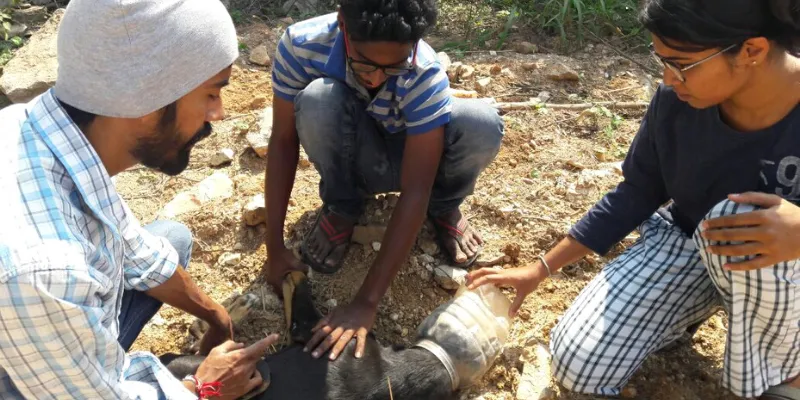
Pradeep along with other volunteers
A web developer by night and an animal rescuer by day, Pradeep Nair has been stepping out of his comfort zone to provide solace to the amiable creatures.
From volunteering with the Blue Cross, a UK-based animal welfare organisation, laying the foundation for an NGO on his own, to rescuing and treating more than 70,000 animals, Pradeep has done it all.
Pradeep has extended his endeavour in the field of animal welfare. He not only gives animals a new lease of life but also organises several preservation programmes, awareness campaigns, and training workshops as part of his NGO Animal Warriors Conservation Society.
He also spent a great deal of time researching and learning about techniques to retrieve different types of animals, including some of the wild and aggressive creatures. In order to master the rescue of snakes, Pradeep volunteered with the Friends of Snakes Society for a few months.
"When I witnessed the calamity in Kerala, I took the initiative to help them. My team and I had to traverse through tough terrains and even risk our lives to assist the fauna,” notes Pradeep.
Edited by Saheli Sen Gupta



